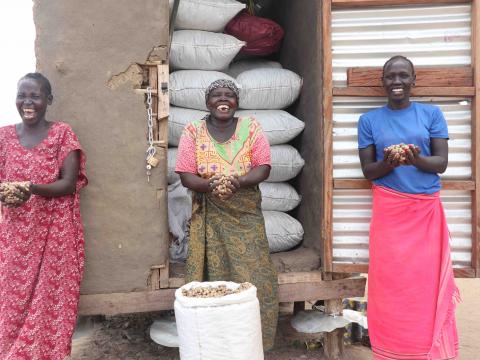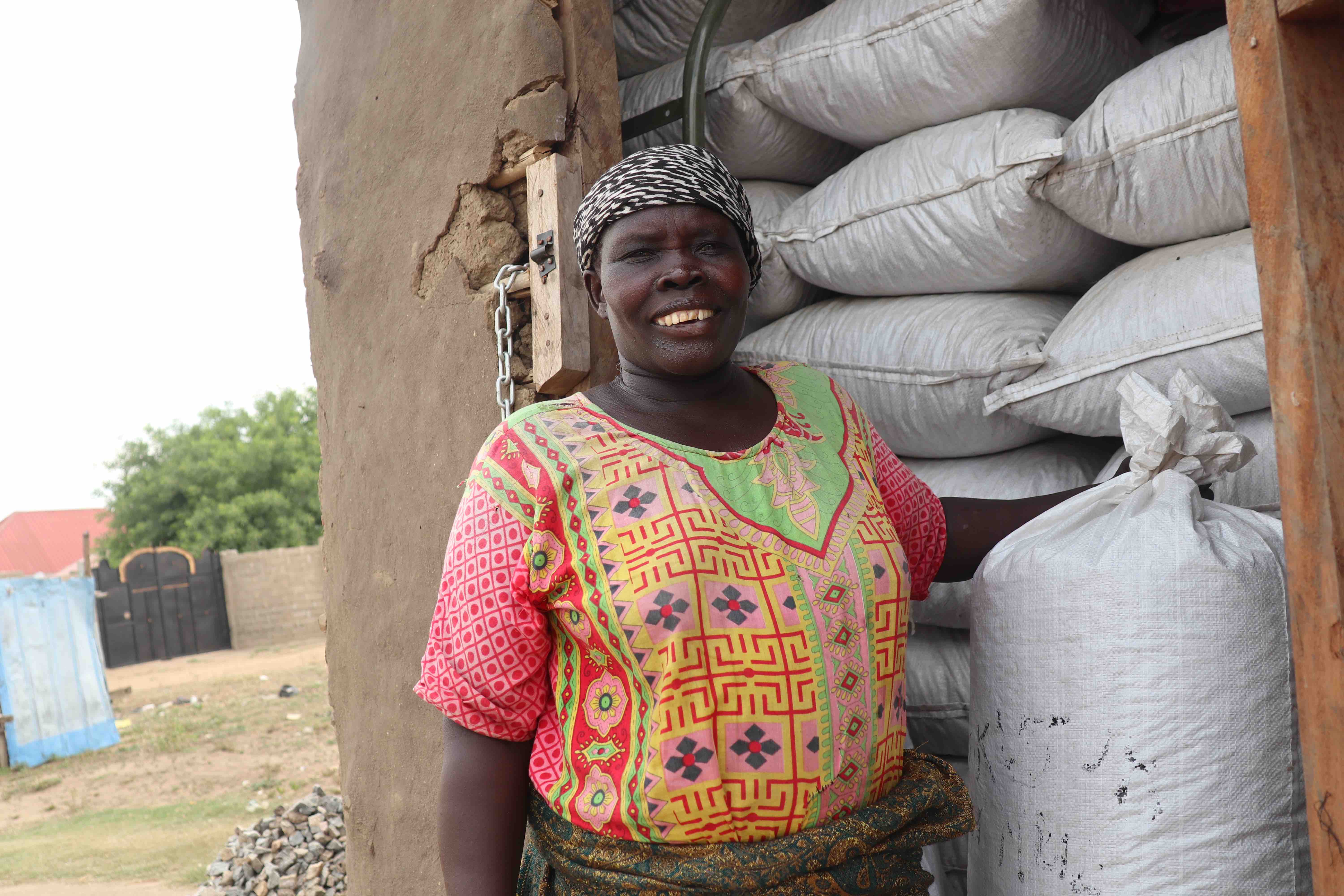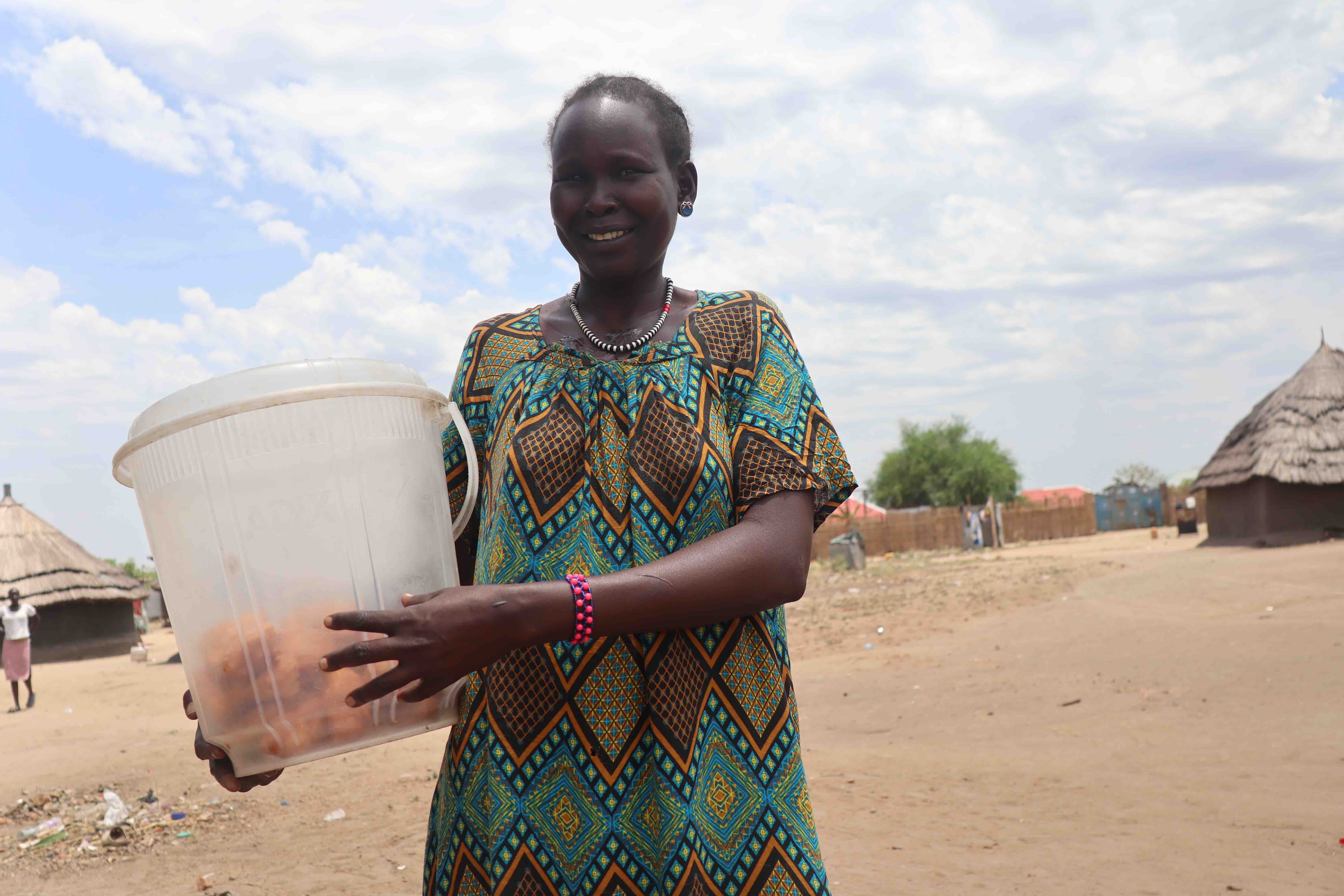“COVID-19 is like a death sentence to women in South Sudan; after years of conflict, it is taking away our plans”

“Since a COVID-19 case was declared in South Sudan, I have not been myself. I was worried. How will we survive without our farm work? Only God knows how long it will take to stop this dangerous disease”, says 45-year old Elder Atim, a farmer.
At least 95 percent of the people in South Sudan are dependent on farming, fishing, and herding for food and income to meet their daily needs, according to the Food and Agriculture Organization (FAO). Most farmers survive on their farm produce to cover their family food needs or buy food for their families, send their children to school and pay their medical bills.
Farmers like Atim and her friends are dedicated to their work and they are happy. Now they are all worried about what will happen next with this pandemic. Atim lost all her nine children to various diseases because she could not afford to pay medical bills. Alone, she helps her sister take care of her four children. If COVID19 prevents her from farming, her fear is to lose them from hunger.

Their cultivation period is normally done in two seasons the first from April to July and the second from August to November. This is no longer possible if COVID-19 takes a long time to control and restrictions continue. “We work in a group and reserve part of our farm products for food, savings and some as seeds for the next planting season”, she explains.
“But with lockdowns, mobilizing farm labor will be difficult. The large acreage of land we cultivate will need people for planting and other farming activities. Then there is also the required social distancing, provision of handwashing facilities recommended by the Ministry of Health. If I do this alone, I can only produce a little”, Atim adds.
Fellow farmer Ajak Mangar, a 36-year-old mother of six, shares, “COVID-19 is like a death sentence to us vulnerable women who depend on farming to feed our children. At a time when we hope to give our children the best life after several years of conflict, COVID-19 takes away our good plans. Why?”

Berhanu Wolde, World Vision’s Food Security and Livelihood Coordinator said COVID-19 will delay land preparation, other farming activities and affect farmers’ access to support because of restriction on movement. He expressed fear for the impact on the succeeding seasons’ crop production.
COVID-19 is like a death sentence to us vulnerable women who depend on farming to feed our children. At a time when we hope to give our children the best life after several years of conflict, COVID-19 takes away our good plans. Why?
Aside from farming, Lilian Juan is enterprising enough to bake local food mandaze to augment her income and sustain her family’s needs while waiting for the harvest time. But as COVID-19 stops her from farm work, so is her small mandaze business.
Lillian says, “Before World Vision started supporting us three years ago, life was not easy. But when they responded to our needs and provided us with tools, seeds and trained us on proper farming methods, my children never lacked anything. With this kind of disease, how will I protect my children from hunger and even get them medication in case they fall sick?”

The farmers are supported by World Vision through the South Sudan Integrated Food Security and Livelihood's Project funded by the Department of Foreign Affairs and Trade (DFAT) through the Australia NGOs Cooperation Program (ANCP).
It aims to help South Sudan’s vulnerable population towards sustainable agriculture through input support, training that can help increase income of 10,000 small-holder farmers and 60,000 community members in Central Equatorial (Rajaf) and Warrap (Tonj North) States.
World Vision’s COVID19 awareness campaign has reached out to over 400,000 people across the country, including these farmers through the support of community leaders, volunteers and faith leaders.
It continues to explore with groups in the communities how preparedness can be done in the coming months to help address the needs.
Related story: How South Sudan's health workers are helping in the campaign against COVID19

Story and photos by Scovia Faida Charles Duku, Communications Officer